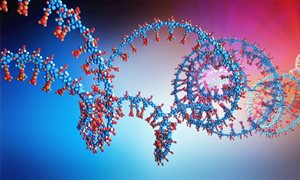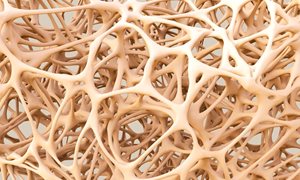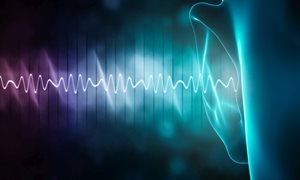
Inflammatory proteins, also known as cytokines, play a crucial role in the immune response. If this immune response is too strong, a phenomenon known as “cytokine storm”, it can cause harm to the patient. It has been thought that a cytokine storm contributes to disease severity in patients with COVID-19. Following the measurement of several important cytokines in patients with COVID-19 and various other severe diseases, researchers at Radboud university medical center now show that COVID-19 is not characterized by a cytokine storm. This may have consequences for the treatment of these patients, the researchers write in JAMA.
The cytokine storm in COVID-19 patients is not clearly defined. In many cases, different cytokines are evaluated and no comparison has been made with other diseases. Therefore, uncertainty and doubt exists concerning the cytokine storm in these patients.
Various patient groups
Researchers from the Intensive Care (IC) department at Radboud university medical center have now measured the concentration of three essential cytokines in the blood of patients admitted to the IC with several distinct conditions. They performed these measurements in patients with COVID-19 who met the criteria for a severe acute respiratory infection (ARDS), patients with bacterial septic shock (with and without ARDS), and patients who had been admitted to the IC after a cardiac arrest or severe trauma. The cytokines were measured using the same methods for each of the groups of patients.
Cytokine storm?
In the abovedescribed five patient groups, the concentration of tumor necrosis factor alpha (TNF-alpha) and interleukins 6 and 8 (IL-6, IL-8) was measured. The results were remarkable. Researcher Matthijs Kox: "The level of cytokines was significantly less elevated in COVID-19 patients than in patients with septic shock and ARDS. Compared to patients with septic shock without ARDS, so without severe pulmonary disease, patients with COVID-19 also displayed markedly lower levels of IL-6 and IL-8. The cytokine concentrations in COVID-19 patients were similar to those in IC patients with trauma or cardiac arrest, conditions that are not noted for a cytokine storm."
Possible consequences
The results from this study show that COVID-19 is not characterized by a cytokine storm. Professor of Intensive Care Medicine Peter Pickkers: "The severe disease observed in critically ill COVID-19 patients is therefore not explained by strongly elevated levels of inflammatory proteins in the blood. This means that critically ill COVID-19 patients likely will not benefit from specific anti-cytokine therapies."
-
Publication in JAMA: Cytokine levels in critically ill patients with COVID-19 and other conditions - Matthijs Kox, Nicole J.B. Waalders, Emma J. Kooistra, Jelle Gerretsen, Peter Pickkers
-
Want to know more about these subjects? Click on the buttons below for more news.
Related news items

Grants for research on magnesium deficiency and malaria Vidis for Felix Hol and Jeroen de Baaij
1 July 2022 Radboudumc researchers Jeroen de Baaij and Felix Hol both receive an NWO Vidi grant for their research, respectively on magnesium deficiency in type 2 diabetes and on malaria. go to page
Hidden genetic defects contain real risks for serious diseases Genome test for consanguineous couples makes sense
19 March 2021 For the first time researchers from Hebrew University of Jerusalem, Radboudumc, Maastricht UMC+ and international colleagues have gained insight into the "hidden genetic defects" of the general European population. go to page
Researchers grow most lifelike bone organoid to date Greatly increasing our understanding of bone formation and bone diseases
9 March 2021 Researchers from Radboudumc and Eindhoven University of Technology have interwoven various bone cells into an 'organoid' that can independently make new, hard bone tissue. It’s the most complete 3D model of bone formation to date. Peaked your interest? Read more! go to page
A genetic patch to prevent hereditary deafness Research in Radboudumc shows that a therapeutic approach for DFNA9 can work
3 March 2021 They can hear well up to about forty years old, but then suddenly deafness strikes people with DFNA9. The cells of the inner ear can no longer reverse the damage caused by a genetic defect in their DNA. Researchers at Radboud university medical center have now developed a “genetic patch” go to page
